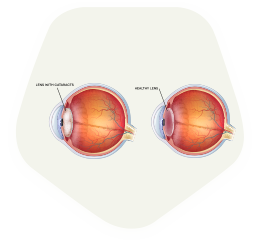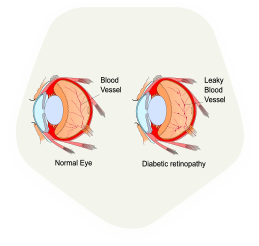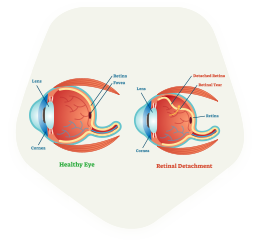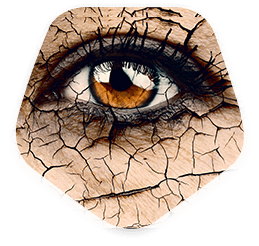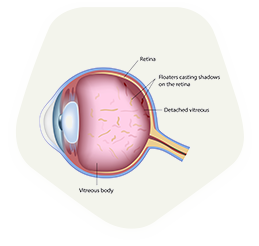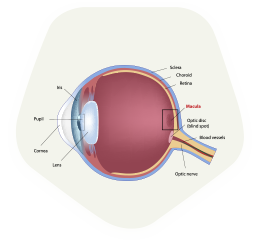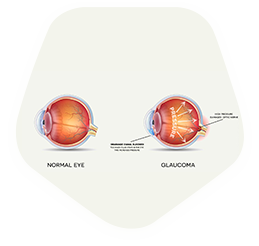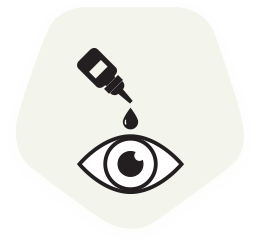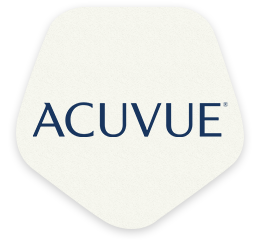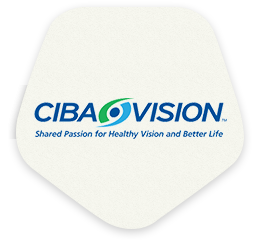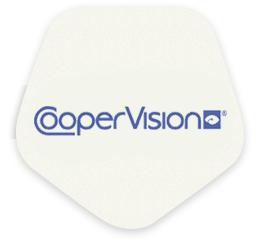
Glaucoma is actually a group of eye diseases that lead to damage of the optic nerve (the bundle of nerve fibers that carry information from the eye to the brain), which can then lead to vision loss and the possibility of blindness.
Optic nerve damage usually occurs in the presence of high intraocular pressure. Glaucoma can occur with normal or even below-normal eye pressure.
When a patient has glaucoma or is at high risk for developing the disease, physicians may document how the optic nerve changes over time by making drawings, taking photographs or using a new technique called optic nerve imaging. Scanning laser polarimetry (GDx), confocal scanning laser ophthalmoscopy (Heidelberg Retinal Tomograph or HRT II) and optical coherence tomography (OCT) are all examples of optic nerve imaging techniques.
New research is focusing not only on lowering pressure inside the eye, but is also exploring medications that will protect and preserve the optic nerve from the damage that causes vision loss as well as the role of genetic factors. There has been progress in understanding the genetics of glaucoma in the last few years.
- There are two main forms of glaucoma: open-angle (which is the most common form and affects approximately 95 percent of individuals) and closed-angle. There are also several other varieties of glaucoma, including secondary, normal-tension, congenital, pseudoexfoliation syndrome, juvenile, neovascular, pigmentary and irido-corneal-endothelial syndrome (ICE syndrome).
- Glaucoma is a leading cause of blindness among African Americans and Hispanics in the United States. African Americans experience glaucoma at a rate of three times that of Caucasians and experience blindness four times more frequently. Between the ages of 45 and 64, glaucoma is 15 times more likely to cause blindness in African Americans than in Caucasians.
- High-risk factors for open-angle glaucoma include being an African American and over 40, having a family history of the disease and being over 60. Those who are very nearsighted, have a history of diabetes, have experienced eye injury or eye surgery or take prescription steroids also have an increased risk of developing glaucoma. It has also been suggested that individuals with Japanese ancestry may be at a greater risk for normal-tension glaucoma, and that those of Asian and Eskimo descent may have a greater risk for closed-angle glaucoma.
- Open-angle glaucoma, by far the most common form, has no symptoms at first. At some point, side vision (peripheral vision) is lost and without treatment, total blindness will occur.
- Closed-angle glaucoma (acute glaucoma) results from a sudden, complete blocking of the fluid flowing out of the eye. Symptoms may include severe pain, nausea, vomiting, blurred vision and seeing a rainbow halo around lights. Closed-angle glaucoma is a medical emergency and must be treated immediately or blindness could result in one or two days.
- Currently, there is no “cure” for glaucoma; however, early diagnosis and treatment can control glaucoma before vision loss or blindness occurs.
- There are several tests that can help your eye care professional detect glaucoma. These include a visual acuity test, visual field test, dilated eye exam, tonometry (which measures the pressure inside of the eye) and pachymetry (which uses ultrasonic waves to help determine cornea thickness). Individuals at high risk for glaucoma should have a dilated pupil eye examination, including a visual field test annually.
Early treatment for open-angle glaucoma will usually begin with medications that either help the eye to drain fluid more effectively or cause it to produce less fluid. Several forms of laser surgery can also help fluid drain from the eye.
Our glaucoma patients come to us from Boston, Danvers, Lynn, Marblehead, North Shore Boston, Peabody, Salem and Swampscott. We provide the following products and services:
- Designer glasses
- Vintage eyewear
- Eyeglass frames for men
- Eyeglass frames for women
- Prescription eye glasses
- Prescription sunglasses
- Men’s sunglasses
- Women sunglasses
- Maui Jim sunglasses
- Ray Ban sunglasses
- Progressive lenses
- Eye contact lenses
- Soft contact lenses
- EyeMed Vision Care and VSP vision plans
- VSP doctors
Are you suffering from glaucaoma? At Banville Optical, we can help you with your eye condition. Call us at (978) 745-2774 or fill out our online Request an Appointment form to schedule a consultation with our resident optician Richard Rizkalla, RDO, NCLC.



